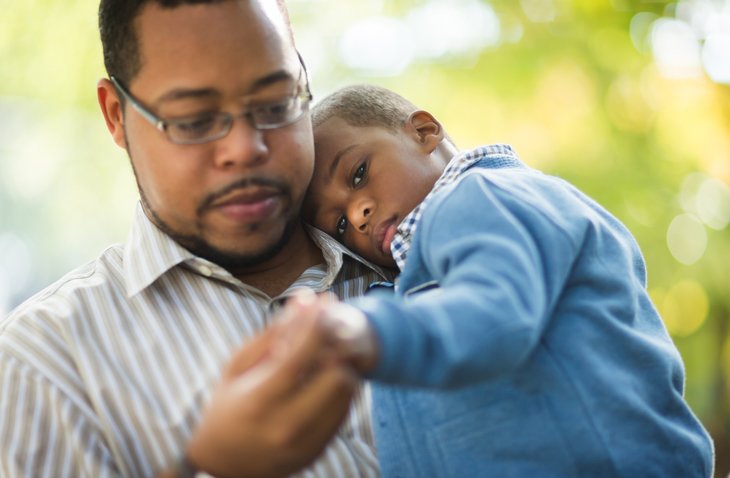Essential Tips for Helping Your Child Deal with Loss
Children, like adults, need time to grieve the loss of a loved one. One of the most important things you can do during this time is to let them know you're available to listen and provide reassurance that they are not alone in their pain. Read on for some valuable guidance to help your child cope with loss.

Give them honest information.
You can best help your child understand how and why the death occurred by sharing the news in simple, direct, and age-appropriate terms. Avoid using deceptive language and half-truths. Saying things like “Uncle Martin went on a trip" can prevent your child from developing effective coping strategies. Euphemisms such as “went to sleep” or “taking an eternal rest” can be confusing and even frightening for a young child.
Seek out teachable moments.
Parents often avoid talking about death to protect their children from unpleasantness. Instead, explain that death is part of the cycle of life. The change of seasons, for example, provides an opportunity to show that death is an inevitable facet of life.
Answer their questions—even the hard ones.
When children ask questions about death, it’s usually a sign that they’re curious about something they don’t understand. Let your child know that all questions are okay to ask and do your best to answer them truthfully. Be sensitive to their ages and the language you use.
Listen without judgment.
One of the most helpful and healing things you can do for your grieving children is to listen to their experiences without jumping in to evaluate them. Never try to correct their feelings or tell them how they should feel. Listening without judgment validates experiences and emotions, and helps children regain a sense of control during a challenging time.
Don’t hide your grief.
When it comes to dealing with loss, keeping “a stiff upper lip” is a bad idea. Children can and often do interpret this behavior as indifference, coldness, or a lack of love. Instead, they need to know that grieving is perfectly normal and acceptable. Allow your child to see you cry. Emotional pain is part of losing a loved one.
Allow them to grieve in a personally comfortable way.
It is normal for children to feel an array of emotions, including sadness, anger, and fear. It is also normal for them to move in and out of grief reactions, at times being very upset or getting angry easily and at other times playing as if nothing has happened. Even in the same family, children may mourn differently. One child may want pictures and keepsakes of the person who passed away, while another may feel uncomfortable with these reminders. Some children want to talk about the death, while others prefer to be left alone. Permit your child grieve in a way that is right for him or her, and don’t assume that what holds true for one child will be the same for another.
Fondly recall your loved one.
Remembering the person who passed on is part of the healing process. It also gives your child permission to share his or her feelings. For example, you might say, “Your dad always loved this song,” or “Everyone said Grandma was the best baker in town.” Some children enjoy having keepsakes that belonged to their deceased loved one, especially objects that hold an emotional significance.
Find ways to honor and remember the departed.
Rather than focusing on the future, research suggests that creating new bonds to the deceased can provide comfort and solace. Activities might include putting together an intimate memorial event for immediate family members, gathering photos and creating a special album, or reliving happy memories together.
Grief is an ongoing process, not an isolated event. If you need more guidance or additional support for a grieving child or yourself, please reach out to our caring team.
About Batchelor Brothers Funeral Services: As a leading African American-owned and operated funeral and cremation organization, Batchelor Brothers Funeral Services has provided a ministry of care to thousands of grieving families. We promise to provide our highest level of distinguished service and respect to families who entrust us to honor their loved ones. In all aspects of the funeral process, we strive to be the absolute best and are honored to help preserve our clients’ legacies for future generations. With two convenient locations serving North and West Philadelphia, it is always our pleasure to be of service. Please visit our website for more information.






Comments